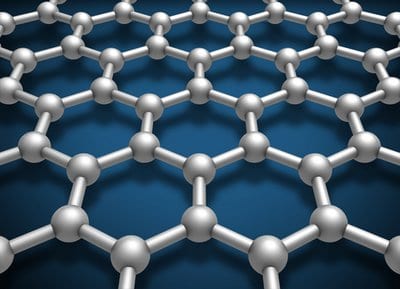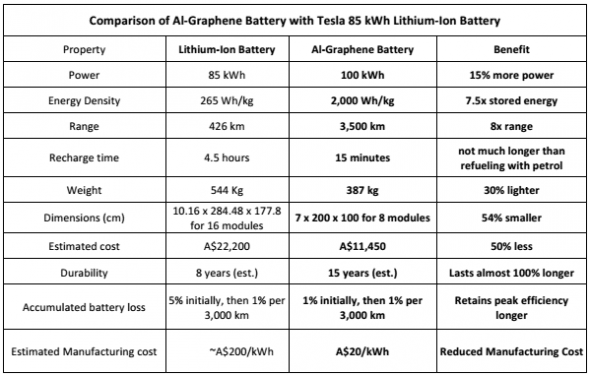Australian company buys 50% stake in “game-changing” graphene battery storage technology
Australian energy technology company LWP Technologies has bought a 50 per cent share in a new, graphene-based battery storage technology that the ASX-listed company believes could “change energy markets and the way the world commutes.”

The $1.6 million deal, described by LWP on Wednesday as a ”major value-adding step” for the company, will see it enter into a joint venture to commercialise the patent pending aluminium-graphene synthesis and battery technology with its Australian-based inventor.
The battery – which comprises an Aluminium-Graphene-Oxygen chemistry – is said to be safer and more stable than lithium-ion batteries, and is shown to have vastly superior energy density.
But perhaps even more significant is the patent that describes the chemical synthesis process to manufacture highest quality graphene on a commercial scale – one of the key barriers to the successful use of graphene in both battery storage applications and in solar cell development.
LWP says funds invested will be spent on developing prototypes for the first of three patents that have been lodged, with an initial focus on the battery technology – including an “ultra fast” rechargeable aluminium-graphene-ion battery.
The JV partners intend to license the technology to battery manufacturers and other industry participants.
The Russian born Australian scientist behind the technology, Victor Volkov, has completed internal laboratory testing of the Al-Graphene-Oxygen battery, which has demonstrated the capacity to deliver significant benefits over lithium-ion technology, which you can see in the table below.

Volkov, who describes the technologies as his “life’s work”, said he was thrilled to be working with LWP to commercialise the them.
“I look forward to creating the revolutionary prototype batteries together with LWP who have a proven track record in developing energy-related technologies from laboratory to commercial scale,” he said.
Lithium-ion batteries, currently the dominant energy storage technology, have an estimated current market of more than $US30 billion a year, which is forecast to grow in lock-step with the electric vehicle market.
But lithium-ion continues to have its limitations, including instability and fire risks.
According to LWP, graphene has been recognised for its extraordinary potential in battery storage applications since its discovery by two Russian-émigré, Nobel Prize winning scientists at Manchester University in 2004.
Millions of dollars have since been invested into the technology, with R&D being conducted at a number of renowned universities around the world.
In June last year, the coating of silicon cathodes with high-crystal graphene to almost double the capacity of lithium-ion batteries was revealed as a potential battery storage breakthrough. But experts at Samsung Electronics said the technology was two or three years off commercialisation.




